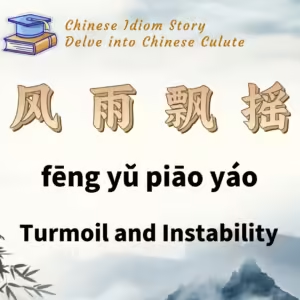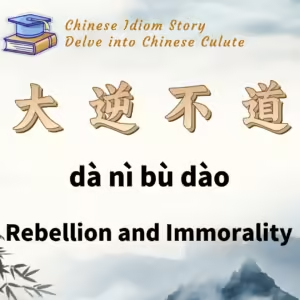
Chinese Idiom: 穷困潦倒 (Qiong Kun Liao Dao)
English Translation: In dire straits and disheartened
pīn yīn: qióng kùn liáo dǎo
Idiom Meaning: This idiom metaphorically describes a state of life marked by poverty, hardship, and a sense of defeat or despair.
Historical Source: Du Fu’s Poem “Climbing High” (《登高》) from the Tang Dynasty.
Idiom Story:
Du Fu, a prominent poet during the Tang Dynasty, faced immense hardship and upheaval during the An Lushan Rebellion, which forced him into a life of constant wandering and instability. In his later years, he experienced severe poverty and illness but remained deeply concerned about his country and its people, yearning for peace and prosperity.
In the autumn of the second year of the Dali period (767 AD), Du Fu wrote his famous regulated verse “Climbing High” while in Kuizhou. This poem captures the poet’s feelings of despair and longing amidst his struggles:
The wind is fierce, the sky high, and the apes lament;
The sandbanks are clear, the white sands, and the birds return.
Boundless fallen leaves flutter down;
The endless Yangtze River rolls on.
A traveler in sorrowful autumn, far from home,
Ill for many years, I ascend alone.
In hardship, I bitterly resent my frosted hair;
In despair, I pour muddy wine at the new pavilion.
In this poem, Du Fu describes a scene of natural beauty contrasted with his personal sorrow. The lines reflect his profound sense of loneliness and despair as he faces the realities of aging, illness, and the dismal state of his life.
The concluding lines, “艰难苦恨繁霜鬓,潦倒新亭浊酒杯” (In hardship, I bitterly resent my frosted hair; In despair, I pour muddy wine at the new pavilion), poignantly express his feeling of being in dire straits, leading to the adoption of “穷困潦倒” as an idiom to encapsulate the essence of poverty and despair.






